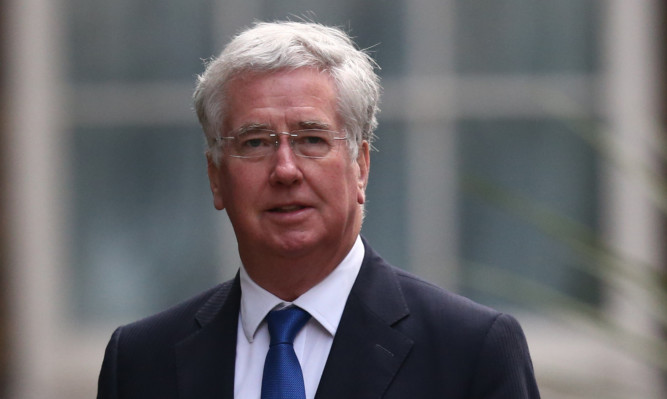Defence Secretary Michael Fallon has dismissed Nicola Sturgeon’s claim that the Conservatives fear the SNP’s threat to make nuclear weapons an election issue in Scotland.
The renewal of Trident “should be an election issue”, he said, and the Tories “stand alongside the Scottish trade unions in wanting to see those jobs and skills retained in Scotland”.
The Defence Secretary also warned his Cabinet colleagues who are campaigning to leave the EU that they are charting a “dangerous path”, during a visit to small defence software firm SeeByte in Edinburgh.
Bob Black, CEO of SeeByte, said companies like his depend on the free flow of talent across international borders.
Ms Sturgeon claimed the Tories are “worried” opponents might make Trident renewal an election issue in May’s Holyrood poll, in an address to anti-nuclear protesters in London’s Trafalgar Square in February.
She said: “You bet we’re going to make it an election issue.”
Mr Fallon said: “Trident should be an election issue. We stand alongside the Scottish trade unions in wanting to see those jobs and skills retained in Scotland.
“There are 17,000 nuclear weapons out there – this is no time to be abandoning our own defences.”
He added: “It is a very dangerous and uncertain world and it’s really no time to be cutting ourselves adrift – whether it is Scotland from the UK or the UK cutting itself adrift from the EU.
“My judgement is we are safer and stronger being members of both the Nato alliance and the European Union.
“We would be charting a much more dangerous path if we left.”
He urged his Cabinet colleagues to stop talking about “Project Fear” and instead focus on “Project Proof”.
“They’ve got to show, if we are going to leave the European Union, what our future trading relationships would be,” he said.
Mr Fallon warned small firms would face tariffs and regulations if the UK leaves the EU.
He pledged to help small defence firms access the public spending that has traditionally gone to big companies.
“Defence spending in the past traditionally has gone to the very large companies – to BAE Systems, to Rolls Royce, to Babcock, and so on,” he said.
“We need to shake up that model and make it much easier for small, fast-moving technology companies to bring their products and skills into defence and help us devise new solutions.
“We have to keep up with our adversaries, whether it is in cyber, unmanned aeroplanes or unmanned water vehicles of the kind that I have seen here today.”
Mr Black said: “We do depend on the free flow of talent across international borders.
“It would be very difficult to build a company like SeeByte without the ability to do that, so in general I would say we are pro-Europe.”
